- Home
- Ian Fleming
Bond 05 - From Russia With Love Page 2
Bond 05 - From Russia With Love Read online
Page 2
Although it would have explained her instincts about the man whose body she massaged, it was as well for the girl’s peace of mind that she did not know who he was.
His real name was Donovan Grant, or ‘Red’ Grant. But, for the past ten years, it had been Krassno Granitski, with the codename of ‘Granit’.
He was the Chief Executioner of SMERSH, the murder apparat of the M.G.B., and at this moment he was receiving his instructions on the M.G.B. direct line with Moscow.
2 ....... THE SLAUGHTERER
GRANT PUT the telephone softly back on its cradle and sat looking at it.
The bullet-headed guard standing over him said, ‘You had better start moving.’
‘Did they give you any idea of the task?’ Grant spoke Russian excellently but with a thick accent. He could have passed for a national of any of the Soviet Baltic provinces. The voice was high and flat as if it was reciting something dull from a book.
‘No. Only that you are wanted in Moscow. The plane is on its way. It will be here in about an hour. Half an hour for refuelling and then three or four hours, depending on whether you come down at Kharkov. You will be in Moscow by midnight. You had better pack. I will order the car.’
Grant got nervously to his feet. ‘Yes. You are right. But they didn’t even say if it was an operation? One likes to know. It was a secure line. They could have given a hint. They generally do.’
‘This time they didn’t.’
Grant walked slowly out through the glass door on to the lawn. If he noticed the girl sitting on the far edge of the pool he made no sign. He bent and picked up his book, and the golden trophies of his profession, and walked back into the house and up the few stairs to his bedroom.
The room was bleak and furnished only with an iron bedstead, from which the rumpled sheets hung down on one side to the floor, a cane chair, an unpainted clothes cupboard and a cheap washstand with a tin basin. The floor was strewn with English and American magazines. Garish paper-backs and hard-cover thrillers were stacked against the wall below the window.
Grant bent down and pulled a battered Italian fibre suitcase from under the bed. He packed into it a selection of well-laundered cheap respectable clothes from the cupboard. Then he washed his body hurriedly with cold water, and the inevitably rose-scented soap, and dried himself on one of the sheets from the bed.
There was the noise of a car outside. Grant hastily dressed in clothes as drab and nondescript as those he had packed, put on his wrist-watch, pocketed his other belongings and picked up his suitcase and went down the stairs.
The front door was open. He could see his two guards talking to the driver of a battered ZIS saloon. ‘Bloody fools,’ he thought. (He still did most of his thinking in English.) ‘Probably telling him to see I get on the plane all right. Probably can’t imagine that a foreigner would want to live in their blasted country.’ The cold eyes sneered as Grant put down his suitcase on the doorstep and hunted among the bunch of coats that hung from pegs on the kitchen door. He found his ‘uniform’, the drab raincoat and black cloth cap of Soviet officialdom, put them on, picked up his suitcase and went out and climbed in beside the plain-clothes driver, roughly shouldering aside one of the guards as he did so.
The two men stood back, saying nothing, but looking at him with hard eyes. The driver took his foot off the clutch, and the car, already in gear, accelerated fast away down the dusty road.
The villa was on the south-eastern coast of the Crimea, about half way between Feodosiya and Yalta. It was one of many official holiday datchas along the favourite stretch of mountainous coastline that is part of the Russian Riviera. Red Grant knew that he was immensely privileged to be housed there instead of in some dreary villa on the outskirts of Moscow. As the car climbed up into the mountains, he thought that they certainly treated him as well as they knew how, even if their concern for his welfare had two faces.
The forty-mile drive to the airport at Simferopol took an hour. There were no other cars on the road and the occasional cart from the vineyards quickly pulled into the ditch at the sound of their horn. As everywhere in Russia, a car meant an official, and an official could only mean danger.
There were roses all the way, fields of them alternating with the vineyards, hedges of them along the road and, at the approach to the airport, a vast circular bed planted with red and white varieties to make a red star against a white background. Grant was sick of them and he longed to get to Moscow and away from their sweet stench.
They drove past the entrance to the Civil Airport and followed a high wall for about a mile to the military side of the aerodrome. At a tall wire gate the driver showed his pass to two tommy-gunned sentries and drove through on to the tarmac. Several planes stood about, big camouflaged military transports, small twin-engined trainers and two Navy helicopters. The driver stopped to ask a man in overalls where to find Grant’s plane. At once a metallic twanging came from the observant control tower and a loudspeaker barked at them: ‘To the left. Far down to the left. Number V-BO.’
The driver was obediently motoring on across the tarmac when the iron voice barked again. ‘Stop!’
As the driver jammed on his brakes, there sounded a deafening scream above their heads. Both men instinctively ducked as a flight of four MIG 17s came out of the setting sun and skimmed over them, their squat wind-brakes right down for the landing. The planes hit the huge runway one after the other, puffs of blue smoke spurting from their nose-tyres, and, with jets howling, taxied to the distant boundary line and turned to come back to the control tower and the hangars.
‘Proceed!’
A hundred yards further on they came to a plane with the recognition letters V-BO. It was a two-engined Ilyushin 12. A small aluminium ladder hung down from the cabin door and the car stopped beside it. One of the crew appeared at the door. He came down the ladder and carefully examined the driver’s pass and Grant’s identity papers and then waved the driver away and gestured Grant to follow him up the ladder. He didn’t offer to help with the suitcase, but Grant carried it up the ladder as if it had been no heavier than a book. The crewman pulled the ladder up after him, banged the wide hatch shut and went forward to the cockpit.
There were twenty empty seats to choose from. Grant settled into the one nearest the hatch and fastened his seat-belt. A short crackle of talk with the control tower came through the open door to the cockpit, the two engines whined and coughed and fired and the plane turned quickly as if it had been a motor car, rolled out to the start of the north-south runway, and, without any further preliminaries, hurtled down it and up into the air.
Grant unbuckled his seat-belt, lit a gold-tipped Troika cigarette and settled back to reflect comfortably on his past career and to consider the immediate future.
Donovan Grant was the result of a midnight union between a German professional weight-lifter and a Southern Irish waitress. The union lasted for a quarter of an hour on the damp grass behind a circus tent outside Belfast. Afterwards the father gave the mother half-a-crown and the mother walked happily home to her bed in the kitchen of a café near the railway station. When the baby was expected, she went to live with an aunt in the small village of Aughmacloy that straddles the border, and there, six months later, she died of puerperal fever shortly after giving birth to a twelve-pound boy. Before she died, she said that the boy was to be called Donovan (the weight-lifter had styled himself ‘The Mighty O’Donovan’) and Grant, which was her own name.
The boy was reluctantly cared for by the aunt and grew up healthy and extremely strong, but very quiet. He had no friends. He refused to communicate with other children and when he wanted anything from them he took it with his fists. In the local school he continued to be feared and disliked, but he made a name for himself boxing and wrestling at local fairs where the bloodthirsty fury of his attack, combined with guile, gave him victory over much older and bigger boys.
It was through his fighting that he came to the notice of the Sinn-Feiners who used Aughma
cloy as a principal pipeline for their comings and goings with the north, and also of the local smugglers who used the village for the same purpose. When he left school he became a strong-arm man for both these groups. They paid him well for his work but saw as little of him as they could.
It was about this time that his body began to feel strange and violent compulsions around the time of the full moon. When, in October of his sixteenth year, he first got ‘The Feelings’ as he called them to himself, he went out and strangled a cat. This made him ‘feel better’ for a whole month. In November, it was a big sheepdog, and, for Christmas, he slit the throat of a cow, at midnight in a neighbour’s shed. These actions made him ‘feel good’. He had enough sense to see that the village would soon start wondering about the mysterious deaths, so he bought a bicycle and on one night every month he rode off into the countryside. Often he had to go very far to find what he wanted and, after two months of having to satisfy himself with geese and chickens, he took a chance and cut the throat of a sleeping tramp.
There were so few people abroad at night that soon he took to the roads earlier, bicycling far and wide so that he came to distant villages in the dusk when solitary people were coming home from the fields and girls were going out to their trysts.
When he killed the occasional girl he did not ‘interfere’ with her in any way. That side of things, which he had heard talked about, was quite incomprehensible to him. It was only the wonderful act of killing that made him ‘feel better’. Nothing else.
By the end of his seventeenth year, ghastly rumours were spreading round the whole of Fermanagh, Tyrone and Armagh. When a woman was killed in broad daylight, strangled and thrust carelessly into a haystack, the rumours flared into panic. Groups of vigilantes were formed in the villages, police reinforcements were brought in with police dogs, and stories about the ‘Moon Killer’ brought journalists to the area. Several times Grant on his bicycle was stopped and questioned, but he had powerful protection in Aughmacloy and his story of training-spins to keep him fit for his boxing were always backed up, for he was now the pride of the village and contender for the North of Ireland light-heavyweight championship.
Again, before it was too late, instinct saved him from discovery and he left Aughmacloy and went to Belfast and put himself in the hands of a broken-down boxing promoter who wanted him to turn professional. Discipline in the sleazy gymnasium was strict. It was almost a prison and, when the blood first boiled again in Grant’s veins, there was nothing for it but to half kill one of his sparring partners. After twice having to be pulled off a man in the ring, it was only by winning the championship that he was saved from being thrown out by the promoter.
Grant won the championship in 1945, on his eighteenth birthday, then they took him for National Service and he became a driver in the Royal Corps of Signals. The training period in England sobered him, or at least made him more careful when he had ‘The Feelings’. Now, at the full moon, he took to drink instead. He would take a bottle of whisky into the woods round Aldershot and drink it all down as he watched his sensations, coldly, until unconsciousness came. Then, in the early hours of the morning, he would stagger back to camp, only half satisfied, but not dangerous any more. If a sentry caught him, it was only a day’s C.B., because his commanding officer wanted to keep him happy for the Army championships.
But Grant’s transport section was rushed to Berlin about the time of the Corridor trouble with the Russians and he missed the championships. In Berlin, the constant smell of danger intrigued him and made him even more careful and cunning. He still got dead drunk at the full moon, but all the rest of the time he was watching and plotting. He liked all he heard about the Russians, their brutality, their carelessness of human life, and their guile, and he decided to go over to them. But how? What could he bring them as a gift? What did they want?
It was the B.A.O.R. championships that finally told him to go over. By chance they took place on a night of the full moon. Grant, fighting for the Royal Corps, was warned for holding and hitting low and was disqualified in the third round for persistent foul fighting. The whole stadium hissed him as he left the ring – the loudest demonstration came from his own regiment – and the next morning the commanding officer sent for him and coldly said he was a disgrace to the Royal Corps and would be sent home with the next draft. His fellow drivers sent him to Coventry and, since no one would drive transport with him, he had to be transferred to the coveted motor cycle dispatch service.
The transfer could not have suited Grant better. He waited a few days and then, one evening when he had collected the day’s outgoing mail from the Military Intelligence Headquarters on the Reichskanzlerplatz, he made straight for the Russian Sector, waited with his engine running until the British control gate was opened to allow a taxi through, and then tore through the closing gate at forty and skidded to a stop beside the concrete pillbox of the Russian Frontier post.
They hauled him roughly into the guardroom. A wooden-faced officer behind a desk asked him what he wanted.
‘I want the Soviet Secret Service,’ said Grant flatly. ‘The Head of it. ’
The officer stared coldly at him. He said something in Russian. The soldiers who had brought Grant in started to drag him out again. Grant easily shook them off. One of them lifted his tommy-gun.
Grant said, speaking patiently and distinctly, ‘I have a lot of secret papers. Outside. In the leather bags on the motor cycle. ’ He had a brainwave. ‘You will get into bad trouble if they don’t get to your Secret Service. ’
The officer said something to the soldiers and they stood back. ‘We have no Secret Service,’ he said in stilted English. ‘Sit down and complete this form. ’
Grant sat down at the desk and filled in a long form which asked questions about anyone who wanted to visit the Eastern zone – name, address, nature of business and so forth. Meanwhile the officer spoke softly and briefly into a telephone.
By the time Grant had finished, two more soldiers, non-commissioned officers wearing drab green forage caps and with green badges of rank on their khaki uniforms, had come into the room. The frontier officer handed the form, without looking at it, to one of them and they took Grant out and put him and his motor cycle into the back of a closed van and locked the door on him. After a fast drive lasting a quarter of an hour the van stopped, and when Grant got out he found himself in the courtyard behind a large new building. He was taken into the building and up in a lift and left alone in a cell without windows. It contained nothing but one iron bench. After an hour, during which, he supposed, they went through the secret papers, he was led into a comfortable office in which an officer with three rows of decorations and the gold tabs of a full colonel was sitting behind a desk.
The desk was bare except for a bowl of roses.
Ten years later, Grant, looking out of the window of the plane at a wide cluster of lights twenty thousand feet below, which he guessed was Kharkov, grinned mirthlessly at his reflection in the Perspex window.
Roses. From that moment his life had been nothing but roses. Roses, roses, all the way.
3 ....... POST - GRADUATE STUDIES
‘SO YOU would like to work in the Soviet Union, Mister Grant?’
It was half an hour later and the M.G.B. colonel was bored with the interview. He thought that he had extracted from this rather unpleasant British soldier every military detail that could possibly be of interest. A few polite phrases to repay the man for the rich haul of secrets his dispatch bags had yielded, and then the man could go down to the cells and in due course be shipped off to Vorkuta or some other labour camp.
‘Yes, I would like to work for you. ’
‘And what work could you do, Mister Grant? We have plenty of unskilled labour. We do not need truck-drivers and,’ the colonel smiled fleetingly, ‘if there is any boxing to be done we have plenty of men who can box. Two possible Olympic champions amongst them, incidentally. ’
‘I am an expert at killing people. I do it
very well. I like it. ’
The colonel saw the red flame that flickered for an instant behind the very pale blue eyes under the sandy lashes. He thought, the man means it. He’s mad as well as unpleasant. He looked coldly at Grant, wondering if it was worth while wasting food on him at Vorkuta. Better perhaps have him shot. Or throw him back into the British Sector and let his own people worry about him.
‘You don’t believe me,’ said Grant impatiently. This was the wrong man, the wrong department. ‘Who does the rough stuff for you here?’ He was certain the Russians had some sort of a murder squad. Everybody said so. ‘Let me talk to them. I’ll kill somebody for them. Anybody they like. Now. ’
The colonel looked at him sourly. Perhaps he had better report the matter. ‘Wait here. ’ He got up and went out of the room, leaving the door open. A guard came and stood in the doorway and watched Grant’s back, his hand on his pistol.
The colonel went into the next room. It was empty. There were three telephones on the desk. He picked up the receiver of the M.G.B. direct line to Moscow. When the military operator answered he said, ‘SMERSH’. When SMERSH answered he asked for the Chief of Operations.
Ten minutes later he put the receiver back. What luck! A simple, constructive solution. Whichever way it went it would turn out well. If the Englishman succeeded, it would be splendid. If he failed, it would still cause a lot of trouble in the Western Sector – trouble for the British because Grant was their man, trouble with the Germans because the attempt would frighten a lot of their spies, trouble with the Americans because they were supplying most of the funds for the Baumgarten ring and would now think Baumgarten’s security was no good. Pleased with himself, the colonel walked back into his office and sat down again opposite Grant.

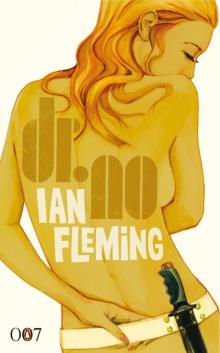 Doctor No
Doctor No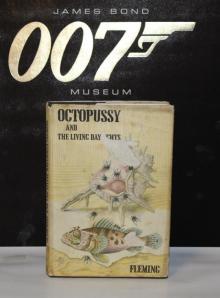 Octopussy & the Living Daylights
Octopussy & the Living Daylights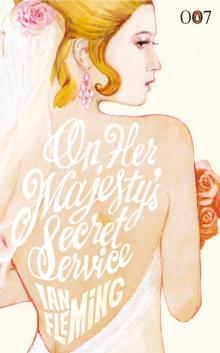 On Her Majestys Secret Service
On Her Majestys Secret Service You Only Live Twice
You Only Live Twice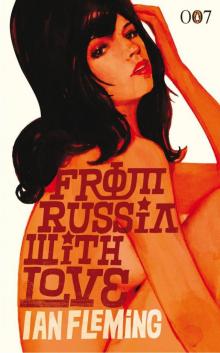 From Russia With Love
From Russia With Love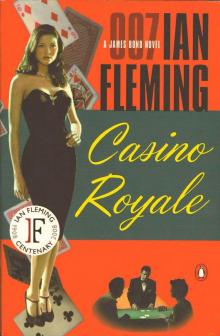 Casino Royale
Casino Royale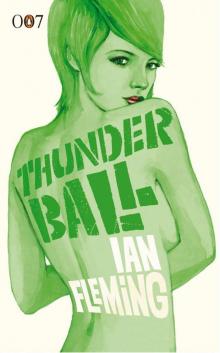 Thunderball
Thunderball For Your Eyes Only
For Your Eyes Only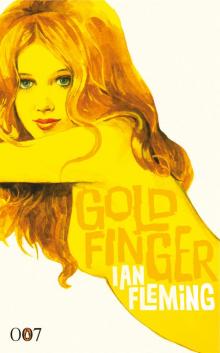 Goldfinger
Goldfinger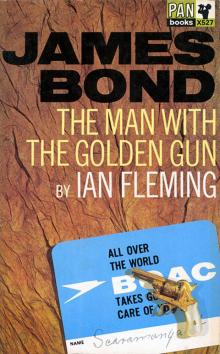 The Man With the Golden Gun
The Man With the Golden Gun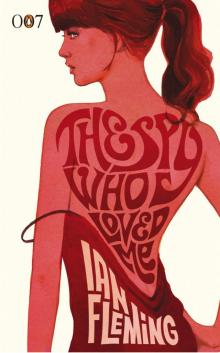 The Spy Who Loved Me
The Spy Who Loved Me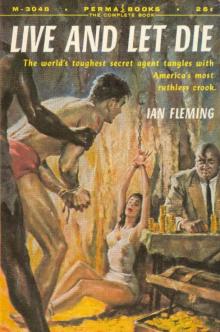 Live and Let Die
Live and Let Die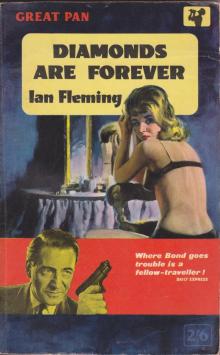 Diamonds Are Forever
Diamonds Are Forever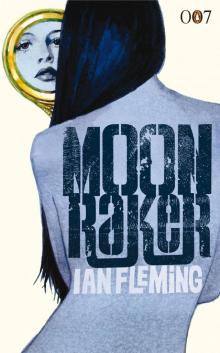 Moonraker
Moonraker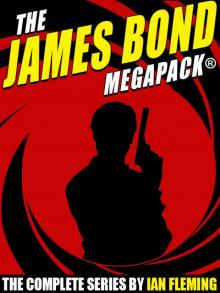 The James Bond MEGAPACK®
The James Bond MEGAPACK®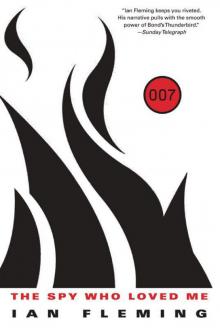 Bond 10 - The Spy Who Loved Me
Bond 10 - The Spy Who Loved Me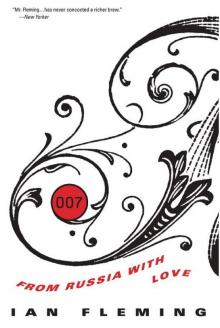 From Russia with Love (James Bond - Extended Series Book 5)
From Russia with Love (James Bond - Extended Series Book 5)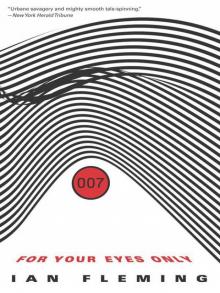 Bond 08 - For Your Eyes Only
Bond 08 - For Your Eyes Only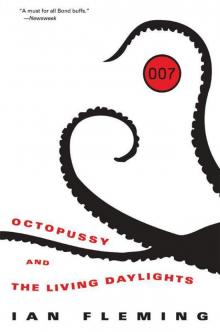 Bond 14 - Octopussy and the Living Daylights
Bond 14 - Octopussy and the Living Daylights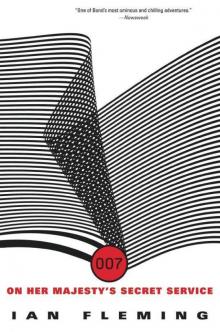 Bond 11 - On Her Majesty's Secret Service
Bond 11 - On Her Majesty's Secret Service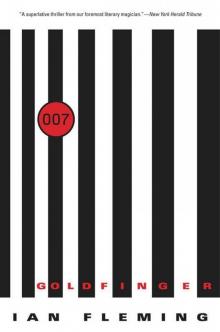 Bond 07 - Goldfinger
Bond 07 - Goldfinger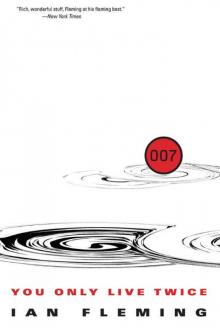 Bond 12 - You Only Live Twice
Bond 12 - You Only Live Twice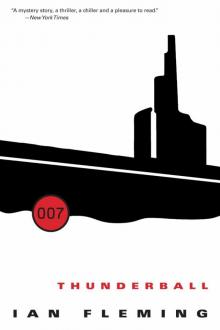 Bond 09 - Thunderball
Bond 09 - Thunderball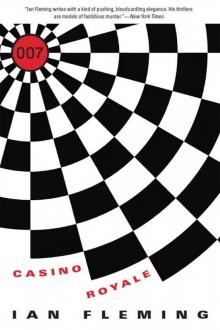 Bond 01 - Casino Royale
Bond 01 - Casino Royale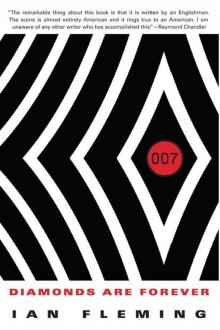 Diamonds are Forever (James Bond - Extended Series Book 4)
Diamonds are Forever (James Bond - Extended Series Book 4)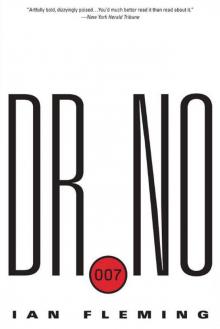 Bond 06 - Dr. No
Bond 06 - Dr. No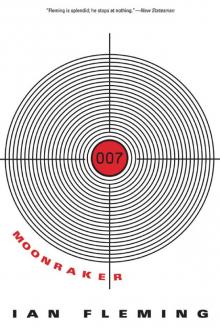 Moonraker (James Bond - Extended Series Book 3)
Moonraker (James Bond - Extended Series Book 3)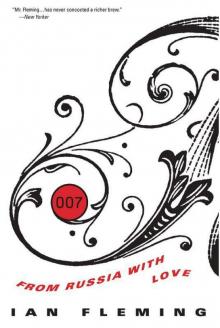 Bond 05 - From Russia With Love
Bond 05 - From Russia With Love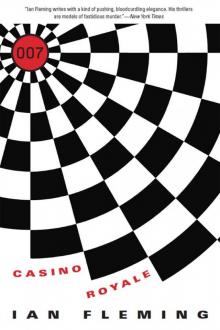 Casino Royale (James Bond - Extended Series Book 1)
Casino Royale (James Bond - Extended Series Book 1)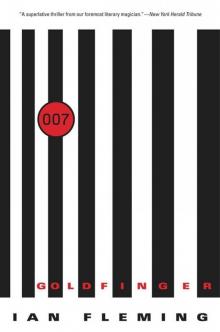 Goldfinger (James Bond - Extended Series Book 7)
Goldfinger (James Bond - Extended Series Book 7)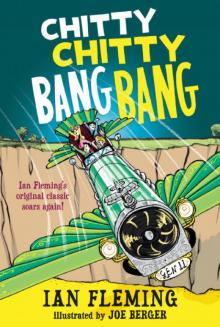 Chitty Chitty Bang Bang: The Magical Car
Chitty Chitty Bang Bang: The Magical Car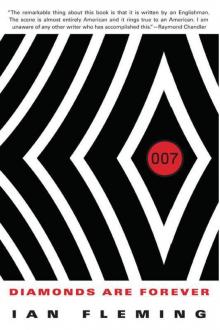 Bond 04 - Diamonds Are Forever
Bond 04 - Diamonds Are Forever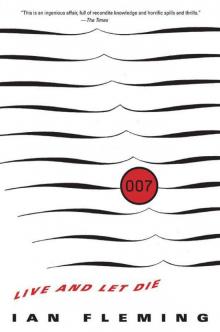 Bond 02 - Live and Let Die
Bond 02 - Live and Let Die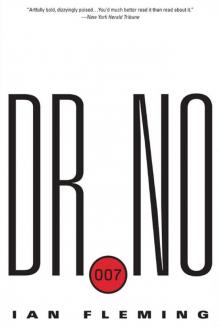 Dr. No (James Bond - Extended Series Book 6)
Dr. No (James Bond - Extended Series Book 6) The Hildebrandt rarity
The Hildebrandt rarity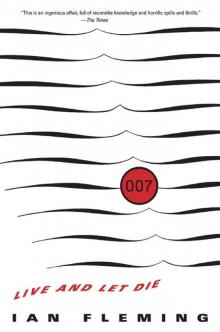 Live and Let Die (James Bond - Extended Series Book 2)
Live and Let Die (James Bond - Extended Series Book 2)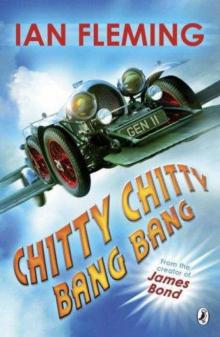 Chitty Chitty Bang Bang
Chitty Chitty Bang Bang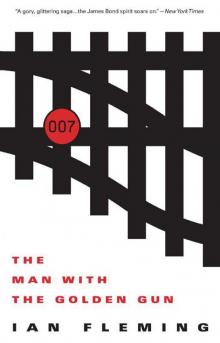 Bond 13 - The Man With the Golden Gun
Bond 13 - The Man With the Golden Gun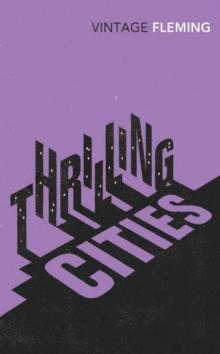 Thrilling Cities
Thrilling Cities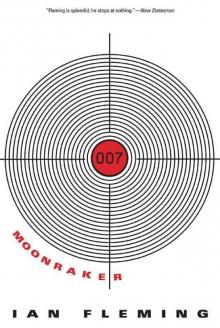 Bond 03 - Moonraker
Bond 03 - Moonraker